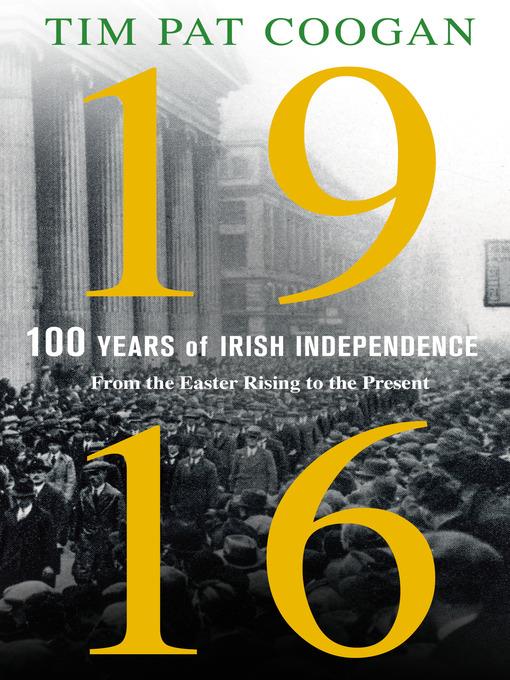
1916--One Hundred Years of Irish Independence
From the Easter Rising to the Present
کتاب های مرتبط
- اطلاعات
- نقد و بررسی
- دیدگاه کاربران
نقد و بررسی

September 26, 2016
In this personal, angry work, Coogan (The Famine Plot) revisits a well-covered period in Irish history, but from the perspective of his long engagement in this history as a journalist who knew (and knows) many of the men and women who fill the book’s pages. Coogan is outraged at “the corruption of a nation” by both British and Irish political, corporate, and religious figures, and is unsparingly harsh on the Irish Catholic Church, to whose failure he devotes two searing chapters. His indictments, though previously aired by many others, carry much weight. Yet the book has its curious features. Coogan, writing often in the first person, lists all 12 of his previous works of popular history as sources (even quoting from some of them), but none of the great existing histories of his nation. Consequently, read as blunt-talking high journalism rather than as authoritative history, this book is likely to be used by future historians as a primary source. Today it should be read as a work of radical criticism by a disenthralled Irish patriot who’s always been on the side of his people, who made history with the tragic Easter rising of 1916, and whose nations’s fortunes have remained precarious since.

September 15, 2016
Irish history from the Irish point of view.That view comes from acclaimed historian Coogan (The Famine Plot: England's Role in Ireland's Greatest Tragedy, 2012, etc.), a true take-no-prisoners writer. The story of Ireland is that of a country struggling against colonialism and the church. The men who fought on Easter 1916 knew they would die; it was their courage that allowed them to hold out for a week. The executions, William Butler Yeats' poem "Sixteen Dead Men," and the letter of outrage from Limerick's bishop roused the country to true revolution. Then came the ugly times of the Black and Tans and Michael Collins' pioneering urban guerrilla warfare. In 1932, Eamon de Valera, Collins' true opposite, took charge of the government. It was the zenith of his power, and it continued through World War II, but new voices needed to be heard. The 1950s and '60s brought a drive for economic expansion with hope of membership in the European Economic Community. The visit of American president John F. Kennedy in 1963 and the changes of the Second Vatican Council also had marked influences on the country. Tourism increased, and there was even a proposal to fund medical aid for women and children, which was powerfully opposed by the church. Here, Coogan throws off the gloves as he lays into the Catholic Church, which ran the schools, institutions, and hospitals--including industrial schools, reformatories, and the Magdalene laundries run by "fallen" girls. The abuses in those institutions are still coming out, and while some restitution has been made, it has been made by the state of Ireland rather than the convents and the diocese. The Celtic Tiger rise of the 1990s and 2000s and the economic collapse lead Coogan to his final plea for "ethical political oversight and...correct governance...that attends to more than short-term financial gain and personal enrichment." The author also bemoans the departure from the 1916 promises of child care, women's rights, and social health. Not always easy reading but a book from which more than just Irish citizens can learn.
COPYRIGHT(2016) Kirkus Reviews, ALL RIGHTS RESERVED.

























دیدگاه کاربران